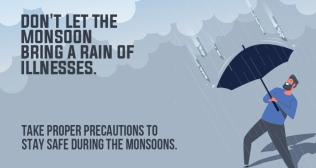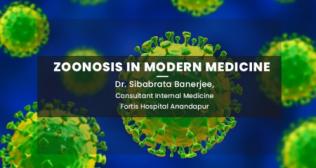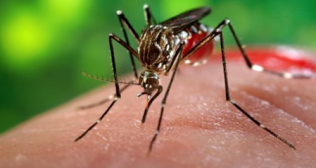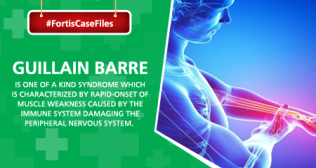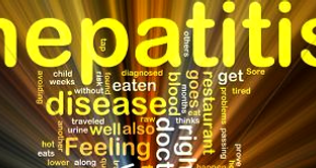
Understanding Food Poisoning Detailed Symptoms, Common Causes and Effective Treatments
Food poisoning happens when you consume something harmful or contaminated food or water infected with bacteria, viruses or any toxic material. These harmful agents can cause symptoms depending on the type and amount of contaminant ingested, as well as the individual’s overall health and immune system strength. These unpleasant symptoms are your body’s natural defence mechanism, striving to restore your health. In some cases, when symptoms become severe, proper treatment is necessary to expel the toxins and return to normal health.
Causes
Food poisoning is mostly caused by microbial infections such as viruses, bacteria and parasites. Harmful chemicals can also lead to food poisoning. Microbes can contaminate food at any stage, from growing and harvesting to processing, storing, shipping or preparing.
Food poisoning occurs when food becomes contaminated due to unhygienic practices, such as poor handwashing and failure to disinfect cooking or eating areas, which can lead to contamination. Improper storage of food is another risk factor, especially when food is kept a long time at room temperature or stored in uncleaned utensils.
How do you know if you have food poisoning?
When you experience food poisoning, your body will start to show symptoms. The food poisoning symptoms can vary, but common signs include:
- Vomiting and nausea
- Body ache
- Diarrhoea, accompanied by bloody mucus
- Stomach cramps or abdominal pain
- Fatigue
- Fever and chills
Symptoms of food poisoning may typically appear within 1 to 2 days after consuming contaminated food. However, they can manifest a few hours after eating or even several weeks later.
Who are a high-risk group for food poisoning?
Certain groups of people, such as pregnant women, elderly individuals, infants and people with a weakened immune system, are considered high-risk.
These groups should take extra precautions with food safety to avoid potential health complications. If you or someone in the group falls into one of these categories, it is important to be vigilant about food hygiene and preparation.
What should you do if you develop food poisoning?
If you have food poisoning, here are some steps to follow:
- Avoid school or work until you have been free from vomiting or diarrhoea for at least 2 days. Give rest to your body to recover from the illness.
- Drink plenty of water to prevent dehydration, as sipping water can be easier if you are feeling nauseous.
- Consider talking to a doctor about an oral rehydration solution.
- Start with small and light meals when you feel better. Stick to bland foods, like toast, crackers, bananas and rice, until you feel better. Also, avoid certain foods and drinks, such as alcohol, caffeine, fizzy drinks or spicy foods, as they can worsen your symptoms.
When to see your doctor?
You may need to consult your doctor if you experience the following symptoms:
- Intense pain, high fever or other extreme symptoms
- Persistent vomiting or diarrhoea preventing hydration
- Prolonged illness without improvement for the past 3 days
- Presence of blood or mucus in your vomit
- Blood or mucus in your stool
In addition, if you belong to a high-risk group. Some risk factors include:
- Pregnancy: Pregnancy can weaken the immune system, making it harder to fight infections.
- Age: Older adults often have weaker immune systems and may have underlying health problems.
- Infancy: Infants and young children have underdeveloped immune systems.
- Having a weak immune system due to illness or medicines: Conditions like HIV/AIDS, cancer treatments or medications that suppress the immune system can increase vulnerability to infections.
Complications of food poisoning
The complications of food poisoning are uncommon in healthy adults. Some of them include:
- Dehydration: This is the most common complication that can be triggered by vomiting and diarrhoea. Adults can prevent dehydration by drinking enough fluid, while children, individuals with weakened immune systems and those with other illnesses may struggle to replace the lost fluids and are more likely to become dehydrated. Severe dehydration may require hospitalisation to restore the fluid balance by intravenous fluid administration.
- Systemic infections: Some contaminants can cause more widespread disease in the body, known as systemic disease or infection. This is more common in older adults, individuals with weakened immune systems or those with other medical conditions. Systemic infections from foodborne bacteria may lead to:
- Blood clots in the kidneys
- Bacteria in the bloodstream
- Meningitis
- Sepsis
- Pregnancy-related complications: Infections from the listeria bacteria during pregnancy can result in serious complications, including:
- Miscarriage or stillbirth
- Sepsis in the newborn
- Meningitis in the newborn
Diagnosis
To diagnose food poisoning, your healthcare provider will inquire about your symptoms and the foods and drinks you consumed recently. Here are some of them
- Medical history: Your healthcare provider will check for symptoms, recent food intake, travel history, changes in medications and underlying conditions.
- Stool test: If there is any suspected infection, a stool sample test may be advised.
- Blood test: To determine the cause of infection and to rule out any condition, a blood test may be advised.
Management and treatment
Food poisoning treatment varies based on the severity of the symptoms and the type of infection, whether bacterial, viral or parasitical. In mild cases, food poisoning can be managed at home with supportive care. However, certain cases may require medications. Below are some of the common treatments:
- Fluid replacement: To keep the body’s fluid balance, it’s essential to replenish lost fluids and electrolytes, including calcium, potassium and salt. Rehydrating after diarrhoea or vomiting is crucial to avoid dehydration. Hospitalisation for intravenous fluids and electrolytes may be necessary for severe dehydration.
- Antibiotics: After diagnosing the cause of food poisoning. your doctor might prescribe antibiotics to manage any potential infection. Usually, these are reserved for serious situations or people who are more likely to experience complications.
- Probiotics: Your healthcare provider might recommend probiotics to help restore healthy bacteria in your digestive system.
Always consult with a healthcare professional to determine the best course of treatment for your specific situation.
Management after recovery from food poisoning
After recovering from food poisoning, it’s important to ease back into your regular diet with foods and drinks that are gentle on your stomach. Here are some considerations:
- BRAT diet (banana, rice, applesauce and toast)
- Oatmeal
- Chicken broth
- Herbal tea
- Potatoes
Hydration is crucial after food poisoning, as vomiting and diarrhoea can lead to dehydration. So, continue drinking plenty of water even after you feel better. Rehydrating beverages help to replace lost electrolytes such as sodium. Once you are rehydrated, you can tolerate bland foods and gradually reintroduce your regular diet.
How do you heal your gut after food poisoning?
It is important to focus on restoring your gut microbiome after experiencing food poisoning. Food poisoning can disrupt the balance of gut bacteria. To help restore this balance, consider incorporating the following foods into your diet:
- Prebiotics: These indigestible plant fibres break down in the small intestines, promoting the growth of beneficial bacteria. Prebiotic foods include asparagus, garlic, chicory, onion, wheat, barley, rye honey, banana, tomato, soybean, cow’s milk, peas, beans and seaweed.
- Probiotics: These are live bacteria found in yoghurt and fermented foods that can add healthy bacteria to your gut. Probiotic foods include yoghurt, kimchi and sourdough bread. Probiotics are also available as supplements, such as tablets, capsules, powders and liquids. Since they contain live bacteria, they need to be refrigerated. Some healthcare providers recommend taking probiotics during recovery from a stomach infection.
It’s best to consult with a healthcare provider familiar with your medical history to determine if this is a good option for you. Taking these steps can help your gut recover and maintain a healthy balance of bacteria.
Prevention of food poisoning
Safe food handling processes are essential to prevent food poisoning. Those involved in harvesting, handling and preparing food must be vigilant at every stage to avoid contamination.
- Thoroughly clean raw produce and wash your hands and utensils before food preparations. Disinfect all surfaces that will come into contact with food, including cutting boards and plates.
- To avoid cross-contamination, separate raw meats and eggs from fresh produce and other food items. Cooking meat products at proper temperatures will kill germs, but if these germs transfer to uncooked items, they may survive and contaminate the food.
- Ensure meats and seafood are cooked to the appropriate temperatures to kill germs.
- Refrigerate or freeze the prepared foods within two hours of cooking to prevent bacterial growth. Regularly check refrigerated foods for signs of microbial growth, such as mold, and discard dairy products past their expiration dates or if they have an off smell.
Conclusion
Understanding food poisoning is vital for the prevention and management of this common but often distressing condition. By learning about detailed symptoms, common causes and best treatment options, you can take better care of yourself and your family. In addition, maintaining good food hygiene, being informed about the various high-risk groups and seeking appropriate medical care whenever required are the key measures in mitigating the impact of food poisoning.







